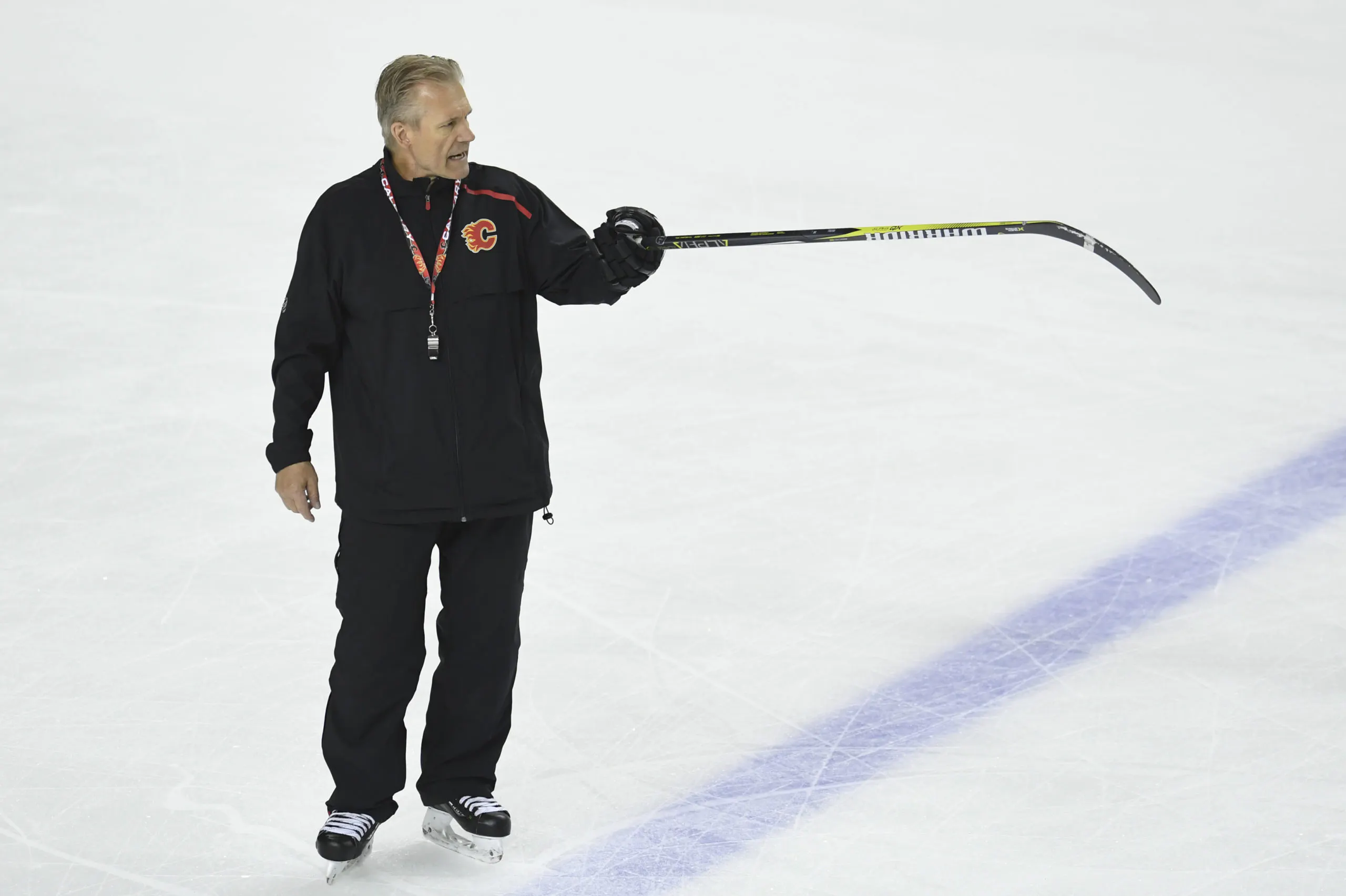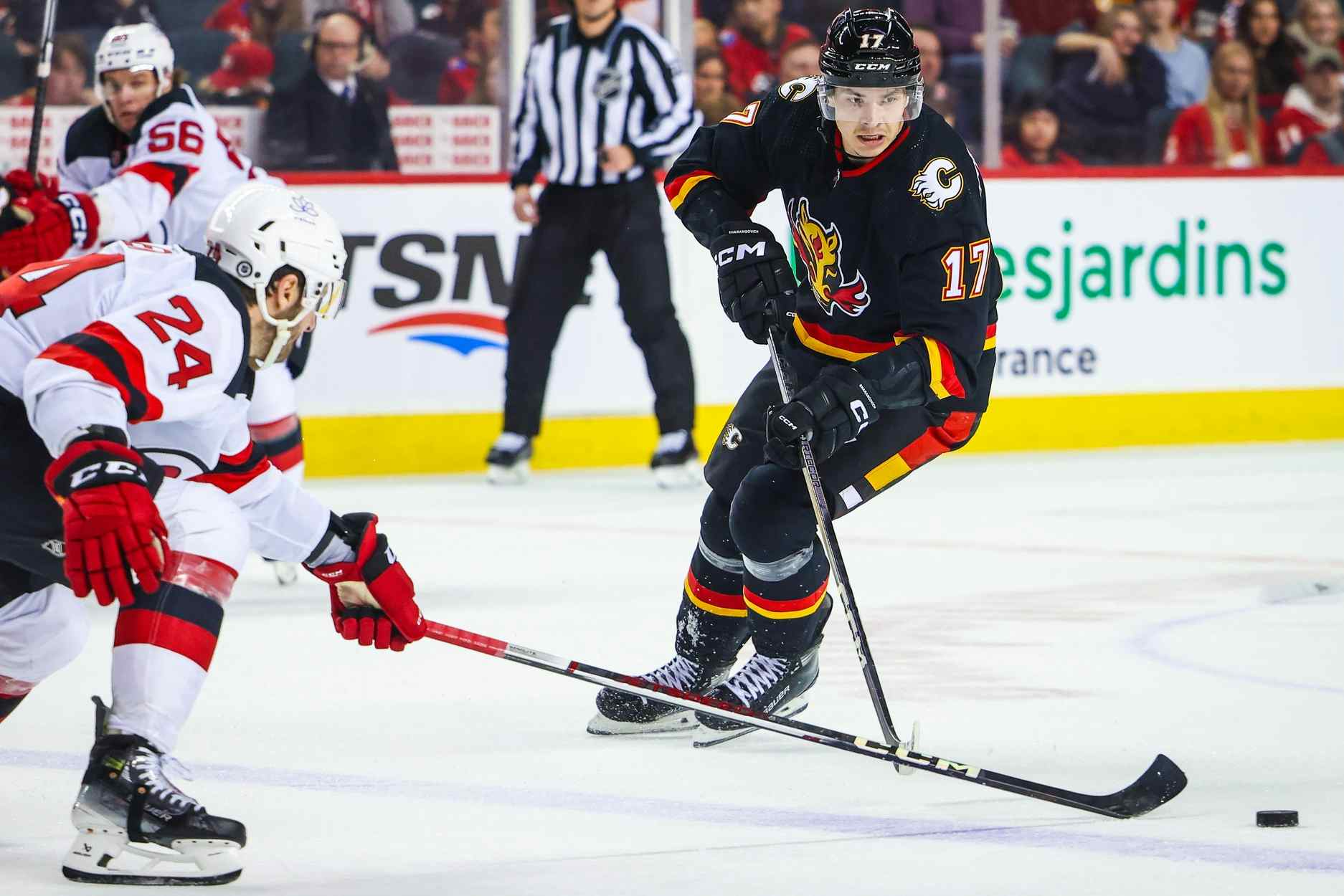Is spending big on a head coach worth it?

By Ryan Pike
3 years agoThe Calgary Flames have yet to announce the fate of interim head coach Geoff Ward. While we wait, let’s address something that has come up quite a bit on Twitter and in the comments: the Flames’ apparent unwillingness to shell out big bucks for an established NHL head coach.
First off, let’s address the team’s apparent unwillingness to spend. It’s primarily anecdotal; while coach salaries aren’t readily available – Cap Friendly has a nice summary but it’s spotty – but the general rule of thumb is that experienced head coaches with playoff success cost big coin.
In the lockout era (2005 to present), the Flames have had the following head coaches:
- Darryl Sutter, who came over with a ton of prior experience and also worked as GM (so he wasn’t cheap)
- Jim Playfair, a first-time NHL head coach (who probably wasn’t expensive)
- Mike Keenan, a legendary coaching figure (who likely cost a bit)
- Brent Sutter, who came over after a stint with New Jersey (and also probably wasn’t cheap)
- Bob Hartley, a former Stanley Cup winner (who likely cost a bit)
- Glen Gulutzan, a second-time NHL head coach after a short stint in Dallas (who probably wasn’t expensive)
- Bill Peters, who came over after a stint with Carolina (and also probably wasn’t cheap)
- Ward, who served as interim coach and got a raise when he took on the larger duties
All-told, the Flames likely shelled out some fairly significant coin for five of their last eight coaches – Playfair, Gulutzan and Ward were probably their “value” options. When you consider that they did this during a salary cap situation while operating in an aging building, dealing with a declining loonie and hosting very few playoff games, you can understand if they were at any point hesitant about shelling out the bucks behind the bench.
And when you look at the coaches who have had success in the cap era, there’s no real correlation between big names and big success.
Here’s a simple table: head coaches who have coached teams to a conference final appearance (e.g., gotten to the final four in the NHL) since 2006. (This was selected as a measure because it’s a strong playoff performance that probably bucks significant puck luck impacts, as well as acts as a proxy for revenue generation via additional playoff dates hosted by a club in non-COVID seasons.)
| Final Fours | Coaches |
| 5 | Joel Quenneville (CHI 09, 10, 13, 14, 15), current Florida HC |
| 4 | Pete DeBoer (NJD 12; SJS 16, 19; VGK 20), current Vegas HC Jon Cooper (TBL 15, 16, 18, 20), current Tampa Bay HC |
| 3 | Peter Laviolette (CAR 06; PHI 10; NSH 17), free agent Randy Carlyle (ANA 06, 07, 17), free agent Mike Babcock (DET 07, 08, 09), free agent Alain Vigneault (VAN 11; NYR 14, 15), current Philadelphia HC Darryl Sutter (LAK 12, 13, 14), free agent (basically retired) |
| 2 | Lindy Ruff (BUF 06, 07), current New Jersey HC Guy Boucher (TBL 11; OTT 17), free agent Michel Therrien (PIT 08; MTL 14), current Philadelphia AC Dan Bylsma (PIT 09, 13), current Detroit AC Mike Sullivan (PIT 16, 17), current Pittsburgh HC Dave Tippett (DAL 08; PHX 12), current Edmonton HC Paul Maurice (CAR 09; WPG 18), current Winnipeg HC Todd McLellan (SJS 10, 11), current Los Angeles HC Claude Julien (BOS 11, 13), current Montreal HC Barry Trotz (WSH 18; NYI 20); current NY Islanders HC |
| 1 | Craig MacTavish (EDM 06), current Lausanne HC (Switzerland) HC Bryan Murray (OTT 07), deceased John Stevens (PHI 08), current Dallas AC Jacques Martin (MTL 10), current NY Rangers AC John Tortorella (NYR 12), current Columbus HC Bruce Boudreau (ANA 15), free agent Ken Hitchcock (STL 16), free agent Gerard Gallant (VGK 18), free agent Rod Brind’Amour (CAR 19), current Carolina HC Craig Berube (STL 19); current St. Louis HC Bruce Cassidy (BOS 19); current Boston HC Rick Bowness (DAL 20); current Dallas interim HC |
Okay, let’s review the most successful coaches and how they landed in the gigs where they had their first post-lockout success:
Betting on a veteran coach: Quenneville had 11 head coaching seasons in the NHL before he arrived in Chicago to coach an absolute murderer’s row of young and growing talent. Making the conference finals five times in 15 seasons is insane. Chicago spent on him, but they had a team that made sense to spend on (and they chose the right guy). Sutter also fits this category, as he had 12 seasons behind the bench before landing in Los Angeles. In each case, it was ownership investing when they had the core to invest in.
Second chances: DeBoer had three NHL seasons under his belt as head coach (from a fairly blah stint with Florida) before landing in New Jersey. He was still considered a prospect when he was hired, but he’s a star now. Laviolette was in a similar situation when he landed in Carolina, coming off two fairly unimpressive seasons as a head coach with the Islanders, as was Babcock in Detroit (after a short stint with Anaheim) and Vigneault in Vancouver (after a stint with Montreal). In these cases, it was betting on a guy to succeed despite his first gig not going terribly well. In the cases where it worked, it was because of learning from what didn’t work in their first stops in the NHL.
First-timers: Cooper had zero NHL head coaching experience when he was promoted from Tampa Bay’s AHL team. He was considered an excellent AHL coach, though, not unlike Travis Green was before Vancouver promoted him. (Carlyle was in this category when he landed in Anaheim the first time as well.) This is the least pricey option, but it works well when you have a core that clicks with the coach. (Cooper had coached most of Tampa’s up-and-comers in the AHL, for example.)
In short? There’s no one way that works best or always works. If nothing else, betting big on a veteran head coach when you don’t have the right group is a big gamble and can be pricey if it back-fires. Heck, the Flames spent a fair amount of money paying coaches not to coach for them since the lockout with all their coaching changes.
With how much of a crap-shoot coaching hires can be, any preference towards value shopping can be understood. That said, there’s not a ton of evidence that is what the team’s preference has been because they’ve gone for what were likely middle-of-the-road priced coaches very frequently rather than fully cheaping out and grabbing first-time coaches from the AHL, junior or college.
Recent articles from Ryan Pike





